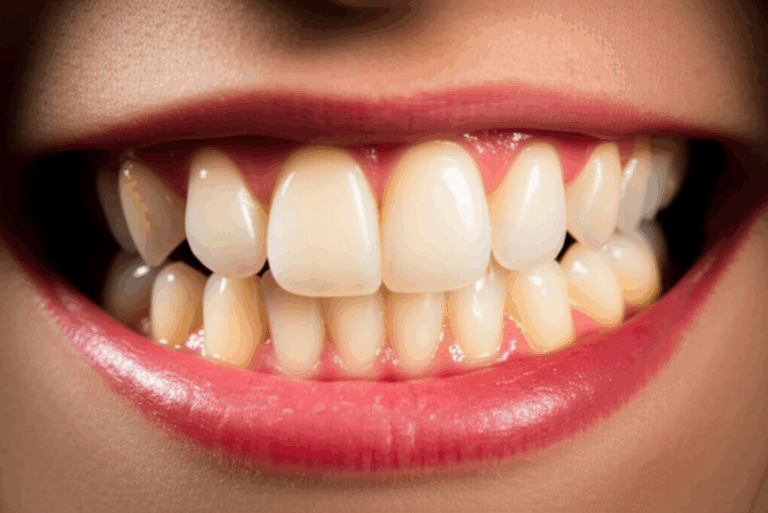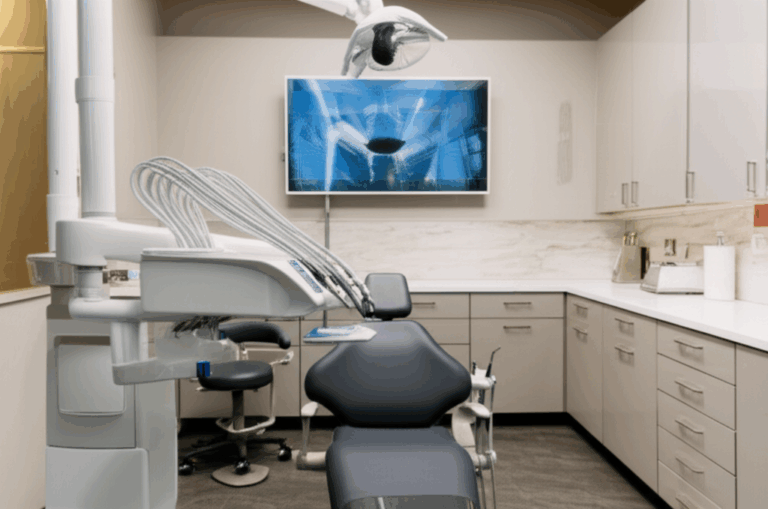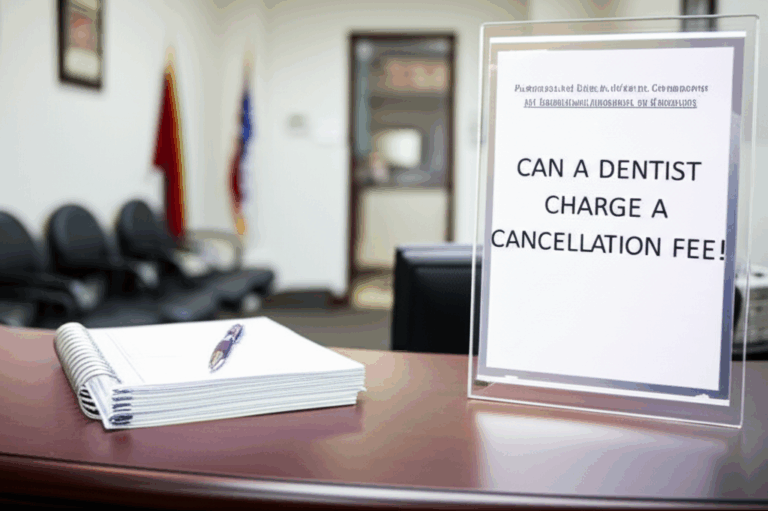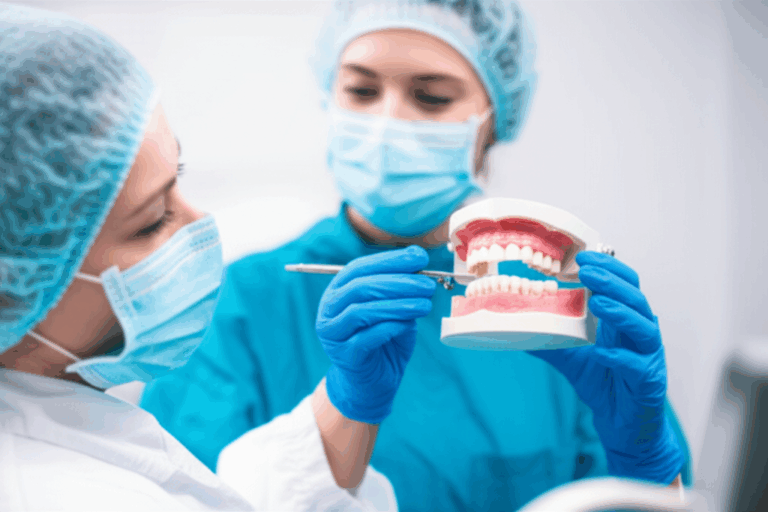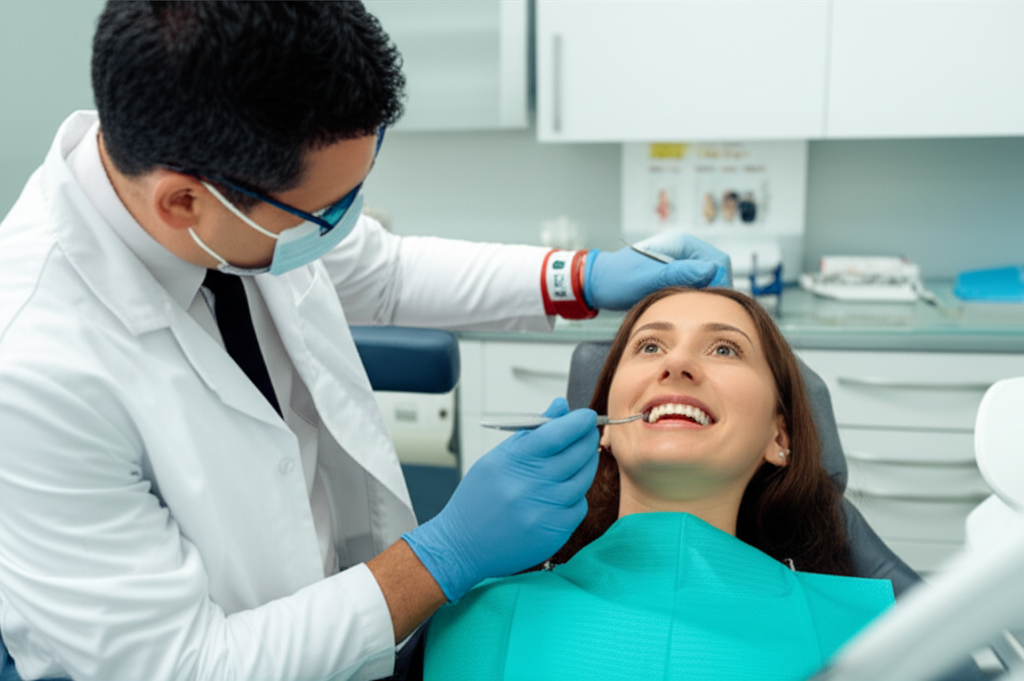
Can a CNA Work in a Dentist Office? Your Guide to Transitioning Healthcare Careers
Are you a Certified Nursing Assistant (CNA) wondering if you can work in a dentist’s office? You’re not alone! Many CNAs look for career changes that use their patient care skills in new and exciting ways. This article is your friendly guide to making the switch from nursing care to dental care. Learn what jobs you can do in a dental office, what skills carry over, what extra learning you might need, and how to start—all in simple words. Let’s jump in and see if a dental office could be your next big move.
Table of Contents
Why Should CNAs Explore Dental Careers?
Have you ever felt stuck in your current job or wanted something just a little different? That’s how I felt as a CNA. Helping people made me happy, but after a while, I wanted to see what else I could do with those skills.
Problem: Nursing work can be really hard. A lot of CNAs look for jobs that are not as tough on your body, give better hours, or just offer a change of pace without leaving care jobs.
Agitate: Maybe you are tired of lifting heavy patients every day, or wish you could try something new. Maybe you want to work somewhere cleaner, or want a job with more set hours and less stress on your body.
Solution: Dental offices need people who can help patients, keep things clean, handle papers, and work with others—just like you! Switching from CNA to working in a dentist’s office is possible and sometimes even simple if you know your choices.
What Are the Main Differences Between a CNA and a Dental Assistant?
It’s smart to know what each job does before trying to switch.
CNA (Certified Nursing Assistant)
- Works in: hospitals, nursing homes, home care, clinics.
- Main Duties: Help patients with washing, eating, moving around, taking vital signs, and making sure they are safe.
- Skills Needed: Kindness, patience, watching carefully, basic health knowledge.
Dental Assistant
- Works in: dental offices, clinics, some special dentist places.
- Main Duties: Getting rooms ready, helping the dentist, handing over tools, keeping things clean, taking x-rays (if trained), talking to patients, taking notes, making appointments.
- Skills Needed: Good with your hands, good at talking to people, keeping tools clean, working with others.
Key Difference: CNAs help people with their whole body health, often the old or sick. Dental assistants help with teeth and mouth health and often work with people who are healthy in small, calm offices.
Here’s a quick table to show the comparison:
| Role | Main Duties | Setting |
|---|---|---|
| Certified Nursing Assistant (CNA) | Personal help, taking vital signs, moving people | Hospitals, nursing homes |
| Dental Assistant | Helping dentist, cleaning tools, x-rays, making appointments | Dental offices, clinics |
What Skills Do CNAs Bring to a Dental Office?
You might be surprised how many things you already know that help in a dentist office.
- Patient Care & Talking: You know how to calm a scared person, explain things in simple ways, and listen. These skills matter a lot to dental patients, especially kids or anyone nervous about the dentist.
- Keeping Things Clean: Everything you learned about dirty hands, gloves, and clean tools is the same in dental offices. Keeping germs away is important in dentistry.
- Paperwork: If you’ve ever written down a patient’s temperature or helped with forms, you can handle dental paperwork too.
- Emergency Skills: Your CPR card and quick thinking help when a patient suddenly doesn’t feel good or faint.
- Staying Organized: You’re good at handling lots of little jobs, staying on track, and keeping things tidy.
Transferable Skills Table:
| CNA Skill | Why It Matters in Dentistry |
|---|---|
| Kindness & Talking | Calms nervous dental patients |
| Keeping Things Clean | Keeps tools and rooms safe |
| Record Keeping | Manages patient dental records & history |
| CPR & Emergency Help | Helps during rare problems |
| Working With Others | Needed in dental office teams |
Which Dental Office Jobs are Open to CNAs?
Some dental jobs use your CNA training right away, others need more learning.
Jobs for CNAs in a Dental Office
- Dental Front Desk / Admin: Answering the phone, greeting people, making appointments, checking insurance, billing.
- Sterilization Tech: Cleaning and sterilizing dental tools, keeping the rooms clean and safe.
- Starting Dental Assistant (with training): Helping set up rooms, helping with patient care, managing supplies, helping the dentist.
Note: Sometimes, states have rules about what jobs you can do; always check local rules.
Example Job Ad for a Dental Office Administrative Assistant
> Looking for a friendly, organized person to greet patients, answer phones, and help with insurance. Healthcare background like CNA preferred.
You see? You may already fit many jobs in dental offices.
What Training or Certifications Do CNAs Need to Work in a Dental Office?
You may need extra training or certificates to work right beside the dentist.
- Dental X-ray Card (if you will do x-rays)
- CPR Card (which you might already have)
- Certified Dental Assistant (CDA) or Registered Dental Assistant (RDA)
Every state has different rules! Some say you can learn by working, some say you need a certificate.
Tip: Before you apply, check your state dental board online to see what they ask for.
Can a CNA Become a Dental Hygienist?
You may wonder about this other job. Dental hygienists clean teeth, take x-rays, and teach people how to care for their mouth.
Here’s what to know:
- Being a dental hygienist means going back to school—usually a two-year degree.
- Your CNA skills help, but you have to do the dental hygiene classes and test in your state.
Hygienists get paid more and do more tooth work, but it takes work and time to get there.
How Does the Dental Office Environment Compare to Nursing?
I’ve worked both places, and I can tell you, they feel different!
In a Nursing Home or Hospital:
- Work can be stressful, loud, and tough on your body
- Shifts can be long or even evenings and weekends
In a Dental Office:
- You work with a small group of people, usually pretty healthy
- Work hours are more often set, with evenings and weekends off
- There’s less heavy lifting, and the office is quieter, which makes it easier physically
If you want to learn how dentists use new tech for better work, check out digital dental labs and how they help dental teams.
What Are the Pros and Cons of Switching from CNA to Dental Work?
Let’s see the good and not-so-good parts, so you can choose what’s right.
Pros
- Use your care skills in a new job
- Learn about tooth health—a useful skill
- Not as tough on your body as hospital or home health work
- Regular office hours—good for people with families!
- Can get more pay, especially after training
Cons
- You often need classes or work training before working right with the dentist
- Starting pay may be close to what you make now, depends on state and office
- Some people think dental work is less mixed up (can feel the same every day)
- Laws can be strict about what tasks you can do if you’re not licensed
Salary Table
| Position | Median Salary (May 2022) [BLS] |
|---|---|
| Certified Nursing Assistant | $36,220 |
| Dental Assistant | $42,310 |
| Dental Hygienist | $81,400 |
What Steps Should You Take to Get a Dental Office Job as a CNA?
Ready to try? Here’s how you can start moving forward:
- Dental assistant in training
- Sterilization tech
- Dental receptionist or scheduler
To learn about dental tech and patient care solutions, discover a china dental lab.
Frequently Asked Questions
Q: Can I work as a dental assistant with only a CNA certificate?
A: Sometimes yes, for jobs like sterilization tech or front desk. But to help with patients right in the dentist chair, you’ll usually need extra dental training.
Q: What CNA skills should I talk about when applying?
A: Talk about your patient care, cleaning, talking to people, and staying calm when things get busy.
Q: Are there online dental assistant classes?
A: Yes, a lot of schools have online classes, but for hands-on work, you usually have to go in-person too.
Q: Are dentist office jobs easy to find?
A: Yes, dental assistant jobs are growing. The U.S. Bureau of Labor Statistics says there will be more jobs in the next years.
Q: Can CNAs work in dental labs?
A: Most dental offices use labs for things like crowns or dentures, like a removable denture lab, but these labs don’t usually hire CNAs.
Summary: Key Takeaways for CNAs Considering Dental Careers
- Yes, CNAs can work in dental offices—especially doing admin, cleaning, or starter dental assistant jobs.
- Lots of CNA skills (like infection control, caring, and being organized) are useful in dental work.
- Most dental helper jobs need extra learning, but classes don’t take too long.
- Dental offices are calmer and have better hours than many hospitals or home care jobs.
- Dental offices are a good place for healthcare workers who want to use their people skills in a new way.
- Check your state’s rules before you start, so you know what’s needed.
Remember: Your care, kindness, and experience matter—even at the dentist!

